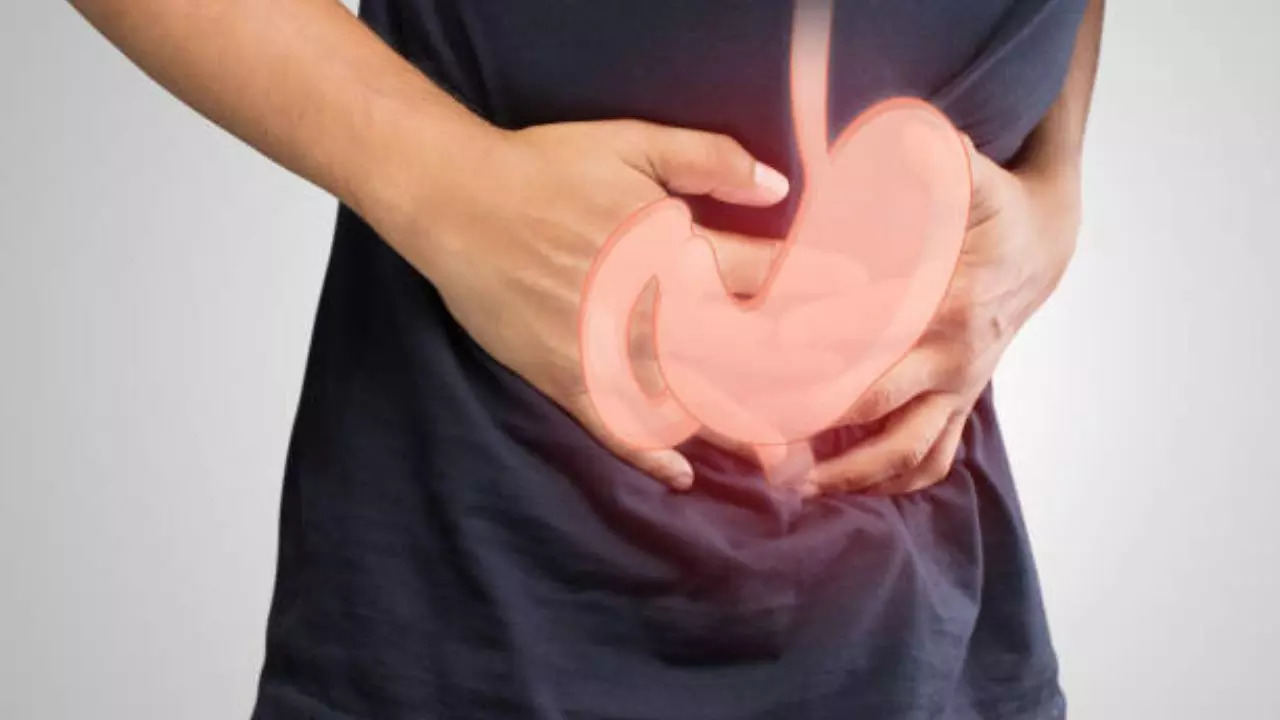Gastroparesis disrupts the normal movement of abdominal muscles and causes debilitating symptoms such as nausea.
Gastroparesis (or gastric paralysis) is a condition that occurs when the stomach takes too long to empty food, known as delayed gastric emptying. According to experts, this condition, which is chronic, presents significant challenges for both patients and healthcare professionals.
“In India, where digestive disorders are common due to dietary habits and lifestyle, gastroparesis is increasingly being recognised as a condition that requires greater awareness and better treatment strategies,” Dr Aravind Badiger, Chief Technical Officer, BDR Pharmaceuticals, told Times Now exclusively.
Gastroparesis is a complex disease
According to Dr. Badiger, gastroparesis not only disrupts the normal movement of the abdominal muscles, but also causes debilitating symptoms such as nausea, vomiting, bloating and early satiety. “These symptoms severely affect the patient’s quality of life, making daily activities and nutritional intake difficult. The condition is often associated with diabetes, post-surgical complications and certain medications, although idiopathic cases, in which the cause is unknown, are also common,” he added.
In India, gastroparesis is underreported due to lack of awareness and difficulties in diagnosis. Experts believe that most patients often present with nonspecific symptoms, leading to misdiagnosis or late diagnosis. “The disease is especially difficult to treat in rural areas, where access to specialist care is limited,” said Dr Badiger.
Other signs and symptoms of gastroparesis
According to doctors, symptoms of gastroparesis range from mild to severe and include:
- Upper abdominal pain
- Loss of appetite
- Always feeling full
- Malnutrition
- Unwanted weight loss
What are the Diagnostic challenges of gastroparesis?
According to Dr Badiger, the condition requires a high index of suspicion and specialised testing, which can be difficult to access in many parts of India. “The standard diagnostic test for gastroparesis is gastric emptying scan, which measures the rate at which food leaves the stomach. However, this test is not widely available, particularly in rural and semi-urban areas,” he said.
Other diagnostic methods include breath tests, which are less invasive but also less accurate, and the wireless motility capsule, which is effective but expensive and rarely used. Therefore, the lack of knowledge among general practitioners about gastroparesis further complicates timely diagnosis, often leading to inappropriate treatment.
How to treat and manage gastroparesis?
The treatment of gastroparesis in India is complicated by several factors including availability of medications, dietary habits, and access to medical care. The cornerstone of treatment involves several complex forms including:
- Dietary modifications, such as eating small, frequent meals and avoiding foods high in fat and fiber, which can delay gastric emptying, may make it difficult for many patients to comply with these dietary recommendations.
- Medications such as prokinetics and antiemetics are common to control symptoms, but they have limitations in their effectiveness and can cause side effects.
- For severe cases, interventions such as gastric electrical stimulation and surgery may also be considered.
What are the advances in the diagnosis and treatment of gastroparesis?
Some significant advances in the diagnosis and treatment of gastroparesis are:
Advanced Diagnostic Tools
Recent advances in diagnostic tools, such as the use of high-resolution manometry and improved imaging techniques, are helping to better understand gastric motility and diagnose gastroparesis more accurately.
New drugs
Research is currently underway on new medications that target the underlying motility problems in gastroparesis. These medications aim to improve gastric emptying and reduce symptoms with fewer side effects than existing treatments.
Innovative treatment
Gastric electrical stimulation, a technique that uses electrical impulses to stimulate the stomach muscles, has shown promise in treating severe gastroparesis.
Telemedicine and remote monitoring
The rise of telemedicine in India is providing new opportunities for the treatment of chronic diseases such as gastroparesis. Remote monitoring and virtual consultations allow patients in remote areas to receive specialized care without the need to travel long distances, making ongoing treatment of gastroparesis more feasible.
Disclaimer:
The information contained in this post is for general information purposes only. We make no representations or warranties of any kind, express or implied, about the completeness, accuracy, reliability, suitability or availability with respect to the website or the information, products, services, or related graphics contained on the post for any purpose.
We respect the intellectual property rights of content creators. If you are the owner of any material featured on our website and have concerns about its use, please contact us. We are committed to addressing any copyright issues promptly and will remove any material within 2 days of receiving a request from the rightful owner.

